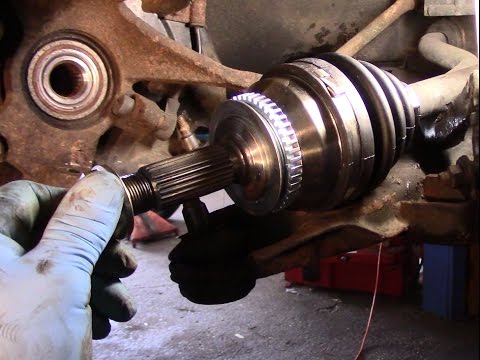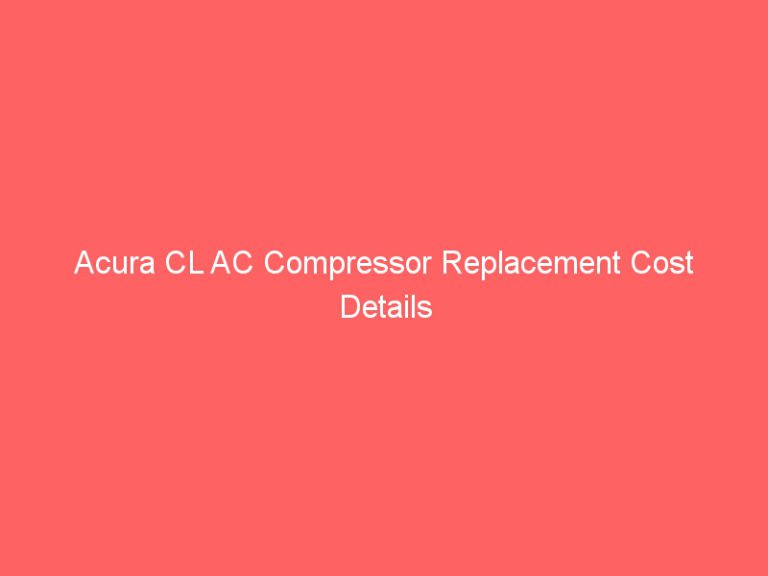Cost to replace a car wiring harness
The cost to replace a car wiring harness varies significantly depending on several factors:
Main Cost Factors:
- Type of harness: Engine wiring harness ($500-2,000+), body/interior harness ($300-1,500), or specific component harness ($100-800)
- Vehicle make/model: Luxury/exotic cars cost more; common domestic vehicles typically less expensive
- Labor complexity: Can range from 2-15+ hours depending on accessibility
- New vs. refurbished: Refurbished harnesses can save 30-50%
Typical Cost Ranges:
- Engine wiring harness: $800-3,000 total (parts + labor)
- Body/interior harness: $500-2,000 total
- Specific component harness: $200-1,000 total
Labor costs typically run $100-150/hour at most shops, and harness replacement is labor-intensive work requiring significant disassembly.
Money-saving options:
- Repairing damaged sections instead of full replacement (often $200-600)
- Used/salvage harnesses from junkyards ($50-300 for parts)
- Independent shops vs. dealerships can save 20-40%
When replacement is needed:
- Rodent damage, corrosion, melted insulation, or multiple electrical faults
The most expensive scenarios involve German luxury cars or vehicles requiring engine removal for access. Always get multiple quotes, as prices can vary dramatically between shops.
Understanding the Cost of Replacing a Car Wiring Harness: A Comprehensive Guide
When your car’s electrical system starts acting up, you might hear your mechanic mention the wiring harness. Understanding what this critical component does and what it costs to replace can help you make informed decisions about your vehicle’s maintenance. Let me walk you through everything you need to know about wiring harness replacement costs, breaking down the complexities into manageable pieces.
What Is a Wiring Harness and Why Does It Matter?
Think of your car’s wiring harness as the nervous system of your vehicle. Just as your nervous system carries signals from your brain to different parts of your body, the wiring harness is a carefully organized bundle of wires, connectors, and terminals that carries electrical power and signals throughout your car. This network connects everything from your headlights and radio to your engine control module and airbag system.
The harness itself consists of hundreds or even thousands of individual wires, each wrapped in protective insulation and bundled together with tape, conduits, or sleeves. These wires are color-coded and routed through specific paths in your vehicle, connecting various electrical components with precision. Modern vehicles can have several different harnesses working together – the main engine harness, the body harness that controls interior features, and specialized harnesses for systems like air conditioning or advanced driver assistance features.
Understanding When Replacement Becomes Necessary
Before we dive into costs, it’s important to understand why a wiring harness might need replacement in the first place. Unlike mechanical parts that wear out from friction and movement, wiring harnesses typically fail due to environmental factors or external damage.
Heat is perhaps the most common culprit. The engine compartment can reach extreme temperatures, and over many years, this heat causes the protective insulation around wires to become brittle and crack. When this happens, wires can short circuit against metal components or each other, causing anything from minor electrical gremlins to complete system failures. Rodent damage presents another surprisingly common problem – mice and rats find the soy-based insulation used in many modern wiring harnesses quite appetizing, and their chewing can cause thousands of dollars in damage overnight.
Corrosion from moisture infiltration, damage from accidents, or even poor repair work from previous electrical modifications can also necessitate harness replacement. Sometimes, the harness itself might be intact, but the connectors at the ends of the wires corrode or break, and in severe cases, replacing the entire harness becomes more practical than attempting repairs.
Breaking Down the Cost Components
Now, let’s examine what goes into the cost of replacing a wiring harness. The total expense typically falls somewhere between $500 and $5,000, though luxury vehicles or those requiring specialized harnesses can exceed this range. To understand this wide variation, we need to look at each cost component separately.
The Part Itself
The wiring harness part typically costs between $200 and $2,000, depending on several factors. A simple body harness for door wiring might cost just $200-$400, while a complete engine harness for a modern vehicle with numerous sensors and control modules can easily exceed $1,500.
Consider the difference between a basic economy car and a luxury sedan. The economy car might have a relatively straightforward engine harness with connections for essential sensors, fuel injectors, and ignition components. The luxury sedan, however, needs wiring for variable valve timing systems, multiple oxygen sensors, direct injection systems, turbocharger controls, and sophisticated emissions equipment. Each additional system adds complexity and cost to the harness.
The choice between OEM (Original Equipment Manufacturer) and aftermarket parts significantly impacts cost. OEM harnesses, made by the same company that supplied the original part, typically cost 50-100% more than aftermarket alternatives. However, they guarantee perfect fit and function. Aftermarket options can save money but might require minor modifications during installation or might not include certain connectors for optional equipment your specific vehicle has.
Labor: The Hidden Expense
Here’s where many car owners experience sticker shock. Labor for wiring harness replacement often costs more than the part itself, typically ranging from $300 to $3,000 or more. To understand why, imagine trying to thread a dozen ropes through a maze of pipes, around corners, and through tiny openings, then connecting each rope to specific points without any mistakes – all while working in cramped spaces and often upside down.
Replacing an engine wiring harness might require removing the entire engine or at least significant engine components. The technician needs to disconnect the battery, remove the old harness wire by wire (carefully documenting connections), route the new harness exactly as specified, and reconnect potentially hundreds of individual connections. A single misrouted wire or loose connection can cause problems ranging from a check engine light to a no-start condition.
The time required varies dramatically based on the harness location and vehicle design. A door wiring harness might take 2-3 hours to replace, while a complete engine harness replacement can require 8-15 hours of labor. At shop rates typically ranging from $75 to $150 per hour, labor costs accumulate quickly.
Real-World Cost Scenarios
Let me paint some realistic pictures of what you might expect to pay in different situations.
For a common scenario – replacing a door wiring harness on a 2015 Honda Civic due to broken wires in the door jamb – you might pay around $400-$600 total. The harness itself costs about $250, and the job requires roughly 2-3 hours of labor at $100 per hour.
Moving up in complexity, imagine you need to replace the engine wiring harness on a 2018 Ford F-150 due to rodent damage. The OEM harness costs approximately $800-$1,200, and the installation requires 6-8 hours of labor. Your total bill would likely fall between $1,400 and $2,000.
At the higher end, consider a 2019 BMW 5 Series requiring a complete engine harness replacement. The OEM part alone might cost $2,000-$2,500, and the complex installation could require 10-12 hours of specialized labor at $150 per hour. You’re looking at a total cost of $3,500-$4,300.
Factors That Influence Your Final Cost
Several variables can push your repair cost higher or lower than these typical ranges. Vehicle age plays a significant role – older vehicles might have cheaper parts available in the aftermarket, but finding OEM parts could be difficult and expensive. Conversely, very new vehicles might only have OEM options available at premium prices.
Your geographic location affects labor rates significantly. A shop in rural Kansas might charge $75 per hour, while a dealership in San Francisco could charge $175 or more. The type of repair facility you choose also matters. Independent shops typically charge 20-40% less than dealerships for labor, though dealerships have the advantage of manufacturer training and guaranteed OEM parts.
The extent of damage influences cost as well. Sometimes, only a section of the harness needs replacement, which manufacturers call a “overlay harness” or “repair harness.” These partial replacements cost less in both parts and labor. However, if diagnostic time reveals multiple issues throughout the harness, complete replacement becomes the only viable option.
Making Smart Decisions About Harness Replacement
When faced with a wiring harness replacement quote, you need to evaluate whether the repair makes financial sense for your situation. For a vehicle worth $5,000, spending $3,000 on a harness replacement might not be practical. However, for a newer vehicle worth $20,000 or more, the same repair could be entirely reasonable.
Consider getting multiple quotes, especially from both dealerships and independent shops specializing in electrical work. Ask whether a partial repair might be possible instead of complete replacement. Some skilled electrical specialists can repair damaged sections of harness for significantly less than replacement cost, though this isn’t always possible or advisable depending on the damage extent.
If you’re somewhat mechanically inclined, you might wonder about DIY replacement. While technically possible, wiring harness replacement requires extensive documentation, patience, and often special tools for removing connectors without damage. A mistake could cause expensive component damage or even fire hazards. Unless you have significant automotive electrical experience, this job is best left to professionals.
Looking at the Bigger Picture
Understanding warranty coverage can significantly impact your out-of-pocket costs. If your vehicle is still under manufacturer warranty, harness problems caused by defects should be covered. Many manufacturers have also issued extended warranties for known harness problems in specific models. Research whether your vehicle has any outstanding recalls or service bulletins related to wiring harness issues.
For rodent damage, comprehensive auto insurance often covers the repair, minus your deductible. Given that rodent damage repairs frequently exceed $1,000, filing a claim might make sense even with a $500 deductible.
The cost to replace a car wiring harness ultimately depends on your specific vehicle, the harness that needs replacement, and where you have the work performed. While the expense can be substantial, remember that the wiring harness is fundamental to your vehicle’s operation. A properly functioning electrical system ensures not just convenience features like power windows and radio, but critical safety systems like airbags, anti-lock brakes, and stability control all work when you need them most. When you understand what goes into the cost – the complex part itself, the labor-intensive installation process, and the expertise required for proper diagnosis and repair – the price begins to make more sense, even if it’s never pleasant to pay.



